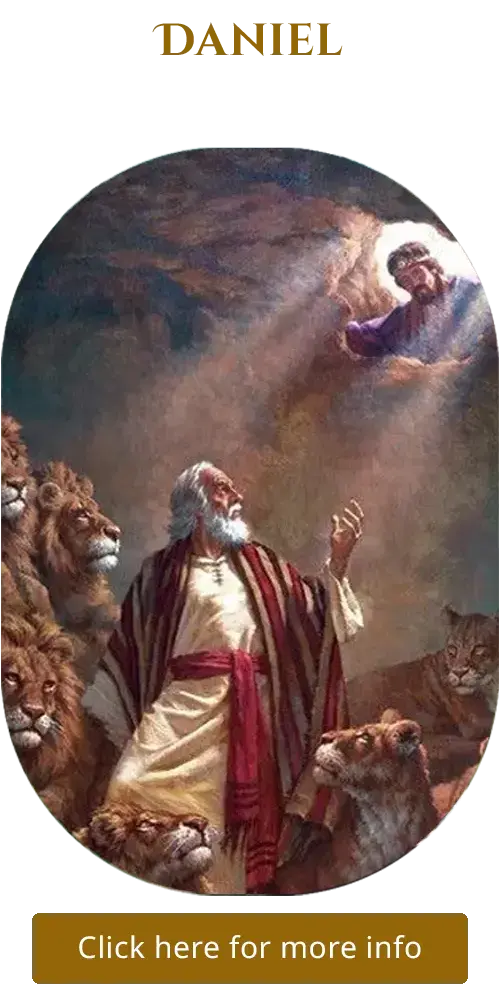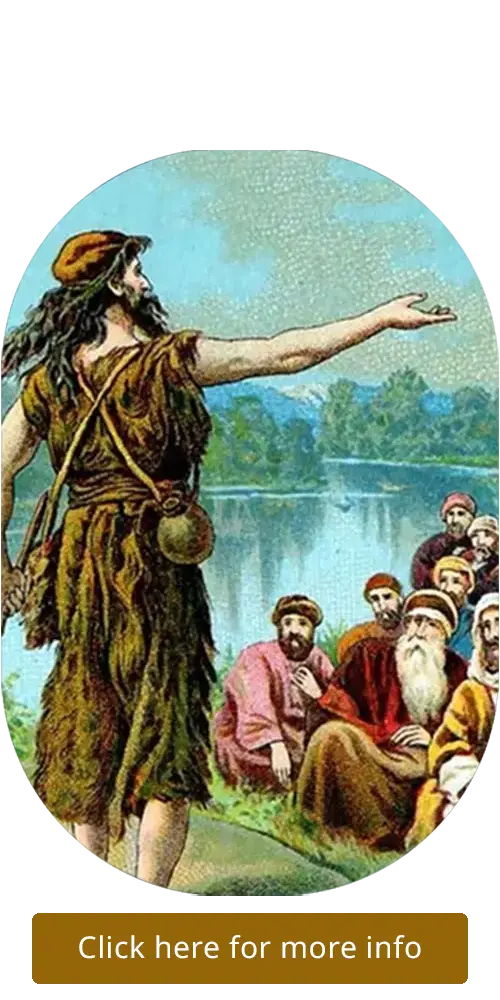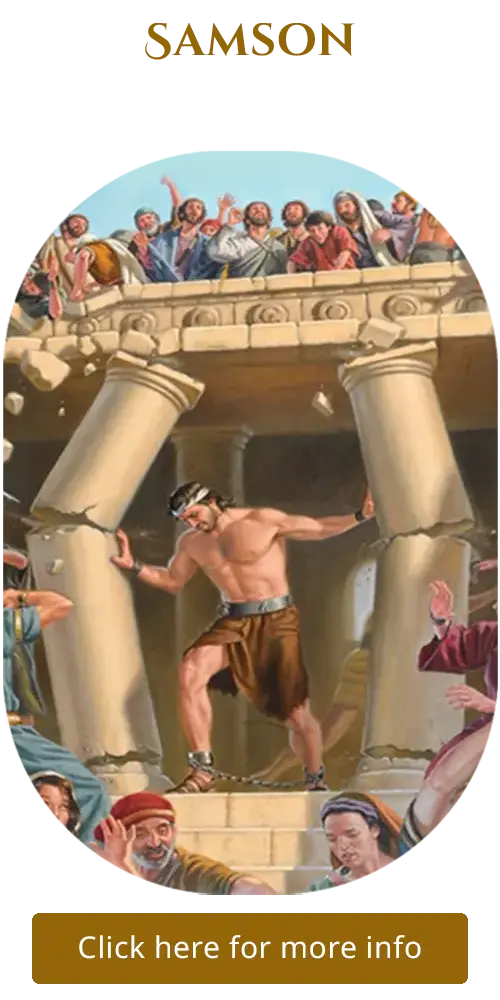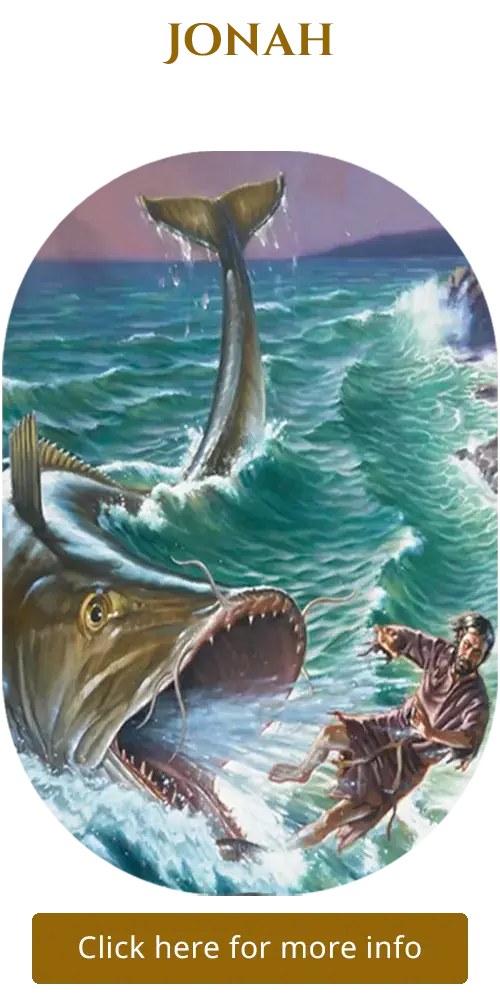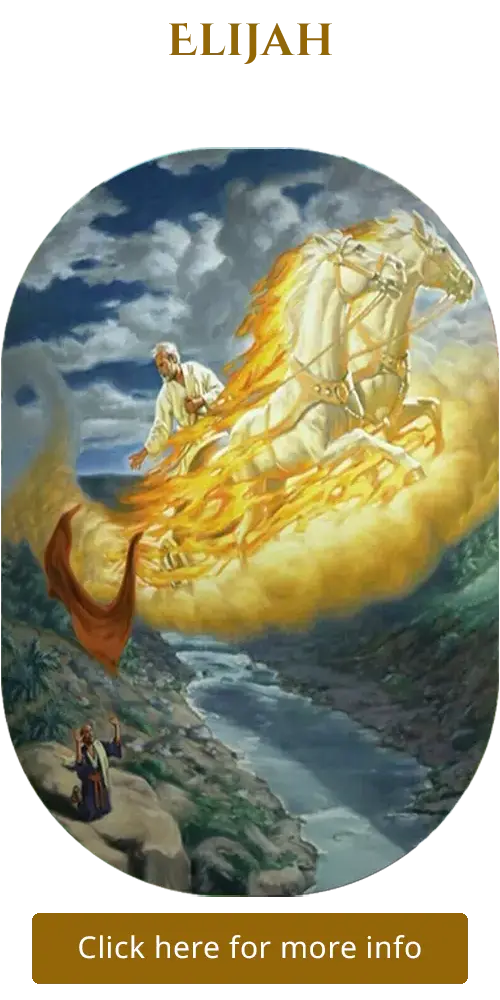St. Barthlomew
Outside Paintings - South Wall
Elijah: The Prophet of Fire and Zeal
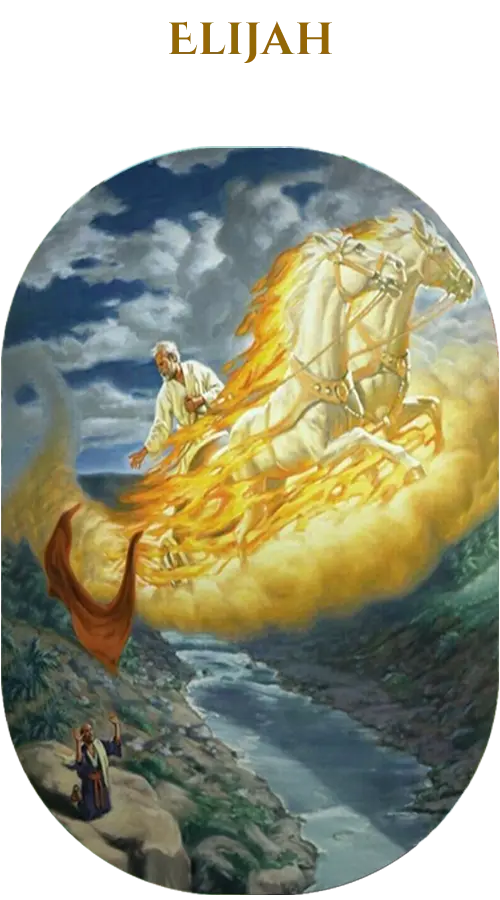
 |
 |
|---|
Reference: 1 Kings 16:29 – 2 Kings 2:18, 2 Chronicles 21:12 – 15
Elijah, a prophet of Israel from Tishbe in Gilead, whose name, meaning “The Lord is my God,” is a central figure in the Hebrew Bible, known for his bold confrontations with idolatry, miraculous deeds, and unique departure from earth. His ministry occurs during the reign of King Ahab and Queen Jezebel, who promoted Baal worship, leading Israel into apostasy.
Elijah’s Introduction and Drought Prophecy
* Historical Context: Ahab, son of Omri, became king of Israel (circa 874–853 BCE) and did more evil than his predecessors, marrying Jezebel, a Phoenician princess who promoted Baal and Asherah worship. This idolatry provoked God’s anger.
* Drought Pronouncement: Elijah the Tishbite appeared abruptly, declaring to Ahab, “As the Lord, the God of Israel, lives, whom I serve, there will be neither dew nor rain in the next few years except at my word”. This drought was a divine judgment against Israel’s idolatry, as Baal was a Canaanite storm god associated with rain.
* God’s Provision: God instructed Elijah to hide by the Kerith Ravine, east of the Jordan, where ravens brought him bread and meat twice daily, and he drank from the brook. When the brook dried up due to the drought, God sent him to Zarephath in Sidon.
The Widow of Zarephath
* Miracle of Provision: God directed Elijah to a widow in Zarephath, a Phoenician town in Baal’s territory. The widow, gathering sticks, was preparing a final meal for herself and her son with her last flour and oil. Elijah asked for water and bread, promising that her jar of flour and jug of oil would not run out until God sent rain. Miraculously, her supplies lasted throughout the drought.
* Raising the Widow’s Son: The widow’s son later became ill and died. She accused Elijah of bringing judgment on her. Elijah took the boy to an upper room, prayed three times, stretching himself over the child, and asked God to restore his life. God revived the boy, and Elijah returned him to his mother, who declared, “Now I know that you are a man of God and that the word of the Lord from your mouth is the truth”.
Confrontation on Mount Carmel
* Call to Confront Ahab: After three years of drought, God told Elijah to present himself to Ahab, promising rain. Elijah met Obadiah, Ahab’s palace administrator and a devout believer who had hidden 100 prophets from Jezebel’s persecution. Obadiah arranged a meeting with Ahab, who called Elijah “the troubler of Israel.” Elijah countered that Ahab’s Baal worship caused the trouble and challenged him to summon the 450 prophets of Baal and 400 prophets of Asherah to Mount Carmel.
* The Contest: On Mount Carmel, Elijah confronted Israel, asking, “How long will you waver between two opinions? If the Lord is God, follow him; but if Baal is God, follow him”. He proposed a test: he and the prophets of Baal would each prepare a bull for sacrifice, but neither would light the fire. The true god would answer with fire. The Baal prophets called on their god from morning to evening, dancing and cutting themselves, but no fire came. Elijah mocked their efforts.
* Elijah’s Victory: Elijah repaired an altar of the Lord with 12 stones (representing Israel’s tribes), placed the bull on it, and had four jars of water poured over it three times, soaking the wood and filling a trench. He prayed, and God sent fire from heaven, consuming the sacrifice, wood, stones, dust, and water. The people declared, “The Lord – he is God!” Elijah ordered the seizure and execution of the Baal prophets at the Kishon Valley.
* Rain Restored: Elijah told Ahab rain was coming. He prayed on Carmel’s summit, sending his servant to check for clouds seven times. A small cloud appeared, and a great rain followed, ending the drought. Elijah, empowered by God’s Spirit, ran ahead of Ahab’s chariot to Jezreel.
Elijah’s Flight and Encounter with God
* Jezebel’s Threat: Ahab told Jezebel about the Carmel events, and she vowed to kill Elijah by the next day. Fearing for his life, Elijah fled to Beersheba in Judah, left his servant, and traveled a day into the wilderness. Despairing, he prayed to die, saying, “I have had enough, Lord”.
* God’s Care: An angel provided Elijah with food and water twice, sustaining him for a 40-day journey to Horeb (Mount Sinai). There, Elijah lodged in a cave, lamenting that he alone was zealous for God and that Israel had forsaken the covenant. God commanded him to stand on the mountain. A great wind, earthquake, and fire passed, but God was not in them; then came a “gentle whisper” (or “still small voice”). God asked, “What are you doing here, Elijah?” Elijah repeated his complaint.
* God’s Commission: God instructed Elijah to return and anoint Hazael as king of Aram, Jehu as king of Israel, and Elisha as his prophetic successor. God revealed that 7,000 in Israel remained faithful, not bowing to Baal. Elijah’s mission would continue through these anointed leaders.
Elisha’s Call
* Elisha’s Recruitment: Elijah found Elisha son of Shaphat plowing with 12 yoke of oxen. Elijah threw his cloak over him, symbolizing a prophetic call. Elisha left his oxen, slaughtered them, and used the equipment to cook a farewell meal for his family before following Elijah as his servant.
Prophecy Against Ahab
* Naboth’s Vineyard: Ahab coveted Naboth’s vineyard in Jezreel but was refused, as Naboth honored his ancestral inheritance. Jezebel orchestrated Naboth’s false accusation and execution, allowing Ahab to seize the vineyard. God sent Elijah to confront Ahab, prophesying that dogs would lick Ahab’s blood in the same place and that his dynasty would be cut off. Dogs would also devour Jezebel by Jezreel’s wall.
* Ahab’s Repentance: Ahab humbled himself, fasting and wearing sackcloth. God told Elijah that because of Ahab’s repentance, the disaster would not come in his lifetime but in his son’s days.
Prophecy Against Ahaziah
* Ahaziah’s Inquiry: After Ahab’s death, his son Ahaziah ruled and, after falling through a lattice, sought guidance from Baal-Zebub, the god of Ekron. God sent Elijah to intercept Ahaziah’s messengers, declaring that Ahaziah would die for not consulting the Lord.
* Confrontation with Soldiers: Ahaziah sent three groups of 50 soldiers to seize Elijah. The first two captains demanded Elijah come down from a hill, and he called fire from heaven to consume them. The third captain pleaded for mercy, and God instructed Elijah to go with him. Elijah repeated the prophecy to Ahaziah’s face, and Ahaziah died, succeeded by his brother Jehoram.
Elijah’s Ascension and Legacy
* Departure to Heaven: As God prepared to take Elijah to heaven in a whirlwind, Elijah traveled from Gilgal to Bethel, Jericho, and the Jordan River, with Elisha refusing to leave him. At each stop, prophets warned Elisha of Elijah’s departure. At the Jordan, Elijah struck the water with his cloak, parting it, and they crossed on dry ground.
* Elisha’s Request: Elisha asked for a double portion of Elijah’s spirit. Elijah said it would be granted if Elisha saw him taken. A chariot and horses of fire appeared, separating them, and Elijah was taken to heaven in a whirlwind. Elisha saw this, tore his clothes, and took Elijah’s cloak.
* Elisha’s Succession: Elisha used the cloak to part the Jordan, confirming his succession. The prophets searched for Elijah but found nothing, as Elisha confirmed his departure.
Elijah’s story calls Orthodox Christians to pursue God above all, stand firm in faith, and bear courageous witness to truth in a fallen world.

